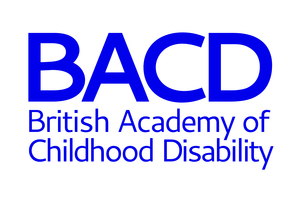RCPCH statement on COVID-19 vaccinations for 12-15 year olds
Updated RCPCH statement on COVID-19 vaccinations for 12-15 year olds following publication of the CMOs advice on 13 September. RCPCH has reflected these changes in its advice page.
16 September 2021
Green Book, chapter 14a updated
The Green Book chapter on COVID vaccinations was updated on 3 September 2021 – see page 18 for new table 4 detailing the clinical risk groups, including those with chronic neurological disease, for those aged 12-15 years.
9 September 2021
Next steps following updated JCVI guidance in relation to COVID-19 vaccinations for children and young people
Key Points
- The data on children who died and children who were admitted to hospital with Covid-19 continues to demonstrate that children, even those with severe disabilities are at low risk from the disease.
- Less than 30 children died in the UK in the first 12 months of the pandemic. Children with very severe physical disabilities and multiple co-morbidities which put them at risk of life threatening chest infections were proportionately slightly higher in this small group.
- The inflammatory complications of Covid-19 (PIMs and myocarditis) are rarely occurring in children with underlying long term conditions.
- The risk of death or serious illness from Covid-19 remains extremely low for children with severe disabilities, however because it seems to be slightly higher than the risk for the child population as a whole and so the JVCI is recommending offering vaccination to adolescents over 12 years who have severe disabilities.
- NHSE is now asking Integrated Care Systems to work with local providers to develop an operational plan for vaccination of this group, amongst others, during the school summer holidays.
- It is not yet clear how the lists of children 12 years and over with severe disabilities will be generated; possibly from special school roles or from central coding lists, but they are likely to be over inclusive rather than restrictive regarding the definitions of eligibility.
- Parents may seek advice from their paediatrician regarding the pros and cons of vaccination. The RCPCH is planning to put some more information on its website to help with this.
- It is important that being offered vaccination is not equated in people’s minds with being Clinically Extremely Vulnerable. The vast majority of children with severe disabilities are not CEV and do not need to be shielded.
- Data from the US regarding vaccination of adolescents is so far reassuring regarding safety and therefore vaccination of all adolescents in the UK may very well be coming soon.
30 July 2021
JCVI issues advice on COVID-19 vaccination of children and young people
The Joint Committee on Vaccination and Immunisation (JCVI) has looked at the available evidence around vaccinating children and young people under the age of 18 and on 19 July 2021 advised that children at increased risk of serious coronavirus (COVID-19) disease are offered a vaccine. This includes children aged 12 to 15 with severe neurodisabilities, Down’s syndrome, immunosuppression and multiple or severe learning disabilities.
There is currently no mechanism in place to book vaccinations for this age group; it is expected that families will be contacted directly by the NHS/their GP. The Green Book will be updated to identify which groups will be eligible.
19 July 2021
Covid-19 vaccination for disabled children and young people and their families
- Current evidence strongly indicates that the single greatest risk of mortality from COVID-19 is increasing age and that the risk increases exponentially with age. Following infection, almost all children will have asymptomatic infection or mild disease.
- Whether a child with severe disabilities is Clinically Extremely Vulnerable has to be made on an individual basis. Children, even those with severe disability, do seem to be at low risk of serious illness from Covid-19 and guidance does not indicate that disabled children should be shielding.
- There is very limited data on vaccination in adolescents, with no data on vaccination in younger children, at this time. The Joint Committee on Vaccination and Immunisation (JCVI) advises that only those children aged 12 and over at very high risk of exposure and serious outcomes, such as older children with severe neuro-disabilities that require residential care, should be offered vaccination with either the Pfizer-BioNTech or the AstraZeneca vaccine (this would be considered unlicensed use of the vaccine).
BACD welcomes the news that the JVCI has revised its recommendations on 30 December to include unpaid carers. A child’s carer becoming ill with Covid-19 is the biggest risk to the child.
- The JCVI recommends unpaid carers who get Carer's Allowance, or who are the main carer of an elderly or disabled person whose welfare may be at risk if the carer falls ill, should be prioritised alongside people with underlying health conditions. This means unpaid carers are now in priority group 6 (Green Book, chapter 14a). Our colleagues at Contact have received assurances from government that work is taking place to identify all unpaid carers so that they can be vaccinated in line with JCVI advice. Further guidance on this is expected in early February.
- Contact’s advice is that unpaid carers ask their GP to mark their medical record with a "carers flag". There shouldn't be a reason for GPs to refuse this.
- Contact have also written to the government minister in charge of vaccines to call for the vaccine delivery plan to be republished to include unpaid carers and to provide communications to unpaid carers so they are clear on how they will be offered the vaccine when their time comes.
References
https://www.rcpch.ac.uk/resources/coronavirus-vaccination-programme-statement
25 January 2021

